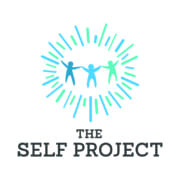Compassion and Selfishness
It is a common misperception that selfishness is the opposite of compassion; that if I am not actively helping someone in need, I ought to feel bad about it. And while it is certainly true that sometimes we fail to act compassionately because we are being selfish, that isn’t always the case.
Especially for people who tend to be very empathetic and rush to help others, and for those who are expected to offer assistance to most everyone all the time (in American culture, that is something often assigned to girls and women), we need to have a conversation about personal boundaries.
Many of us have found ourselves agreeing to something because we think we ought to, even when we know we don’t have the time, energy, or interest. Some of us repeat that pattern over and over again, pleasing others at the expense of ourselves, and one big problem with that is that if and when we decide to stop, people around us have gotten so used to our compliance that they get upset.
When we talk to our children about what it means to be compassionate, we have to include the idea of self-compassion and remind them that they have the right to make choices based on their own level of comfort (or discomfort) and their values, no matter what anyone else thinks. Often, we judge others for not being as kind as we think they should be, but without knowing why someone else is choosing to act in a certain way, we need to be careful to not brand them as selfish.
Encouraging students to define their own personal boundaries, especially when it comes to relationships with family and close friends, is a great way to empower them to be mindful about the way they treat themselves and others and a strong reminder that they are worthy of consideration, too.
Signs of Unhealthy Boundaries
- acting against your values to please someone else
- letting yourself be defined by others
- sacrificing something for someone else and later resenting it
- helping someone because you think you “should”
- over-identifying with someone else’s struggle
- feeling responsible for someone else’s feelings
Next Time: Three Questions to Ask Yourself if You’re Unsure Whether to Help Someone





Trackbacks & Pingbacks
[…] Compassion and Selfishness […]
Leave a Reply
Want to join the discussion?Feel free to contribute!